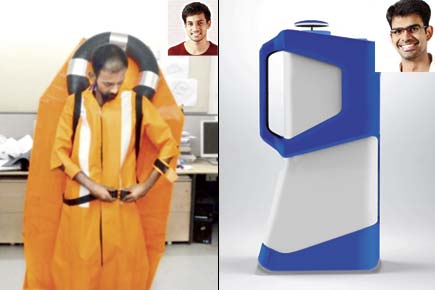From helping visually challenged students learn concepts of science better, to waterproof kits for flood rescue operations and purifiers to help victims get pure water, the exhibition has several projects on display

Students with visual impairment could soon learn concepts of science that involve visual representations; victims of floods could have easier access to pure water; a doctor will no more have to poke a patient with a needle many times to find the correct vein.
ADVERTISEMENT
How? The annual design show this year by the students of the Industrial Design Centre, IIT-Bombay, will be showcasing projects that seek to find easier and cheaper solutions to such problems.
For years, schools catering to visually impaired students have modified their syllabi so as to accommodate such wards, but one of the designs that will be a part of the Design Degree Show 2015 (June 13 to June 17) provides a better solution.
Designed by student Sylvan Lobo, ‘Atomatic,’ as it is called, is a hands-on interactive model of the atom that can help blind students easily learn the concept of the atom. Another student, Trivikram Annamalai, has designed a portable vein-detecting device that can help a doctor find the right vein of the patient while giving injections.
Tanmoy Phukan’s project caters to people stuck in flooded zones in the form of an inflatable structure, which can ferry close to 10 people at once. Some students have also designed interesting educational tools that could be applied in places where the system seems flawed.
Keerti Choudhary has created an animated dictionary a software application for students with learning disabilities like dyslexia. Using an audio-visual medium of animation, this dictionary can help to provide the much-needed help to schools while teaching.
Annamalai has also designed a developmental aid for people with cerebral palsy. “As of now, there are two separate devices used by these patients one for seating and another for standing. My design combines both these devices and also comes at a cheaper cost,” he said.
Most of these designs will be presented to NGOs, hospitals, and government departments for verification and to check their user-friendliness. “The approval also comes from the National Disaster Response Force (NDRF) and I already have received a lot of positive feedback from different sources. However, the true test is when the relief forces can use our work during crisis,” added Phukan.
 Subscribe today by clicking the link and stay updated with the latest news!" Click here!
Subscribe today by clicking the link and stay updated with the latest news!" Click here!






